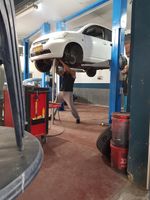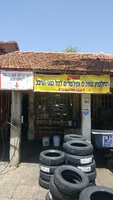Fluid replacement in Ashkelon
45 companies found
- Car Service
- Open Will close at 13:00
- HaNapah St 18, Ashkelon, Israel
English ,Hebrew

- Car ServiceWash station
- Open Will close at 13:00
- Ha-Merkava St 25, Ashkelon

- Car ServiceWash station
- Open Will close at 15:00
- HaBdil St 1, Ashkelon
English ,Hebrew
- Car Service
- Closed Will open on Sunday at 07:30
- Ha-Banai St 56, Ashkelon
English ,Hebrew
- Car Service
- Open Will close at 13:00
- Ha-Kishor St 16, Ashkelon, Israel
English ,Hebrew ,Russian
- Car Service
- Open Will close at 14:00
- Ha-Pninim St 2, Ashkelon
English ,Hebrew ,Russian
- Car Service
- Open Will close at 13:00
- Ha-Merkava St 30, Ashkelon
English ,Hebrew

- Car ServiceTire serviceWash station
- Open Will close at 12:00
- Ort St 30, Ashkelon
English ,Hebrew
- Car Service
- Open Will close at 12:30
- Ha-Pninim St 10
Hebrew
- Car Service
- Open Will close at 13:00
- Ha'Maslul St 6, Ashkelon
English ,Hebrew
- Car Service
- Open Will close at 12:30
- Tsahal St 28, Ashkelon
English ,Hebrew
- Car Service
- Open Will close at 13:00
- Ha-Merkava St 137, Ashkelon
English ,Hebrew
Fluid replacement
The proper vehicle operation is ensured by five main fluids that require periodic replacement: engine oil, transmission oil (gearbox oil), antifreeze, power steering fluid, brake fluid. The automobile makers recommend the following replacement intervals: for engine oil - 7-10 thousand operational km, oil in automatic transmission and manual transmission - 50-60 thousand operational km, replacement of antifreeze - annually, replacement of brake fluid - 30-40 thousand km, oil change in axles - 30 thousand km. However, it is not always possible to maintain such intervals, therefore, for example, it is required to replace the brake fluid, if the brake pedal goes to the floor when pressed, the fluid has changed its color, and the fluid level has decreased. It is required to replace antifreeze, if the liquid has changed its color, sediment has appeared in the expansion tank, and an indicator strip shows a change in the properties of antifreeze. Plus, fluids are replaced upon completion of operations in units that use these fluids in their operation.